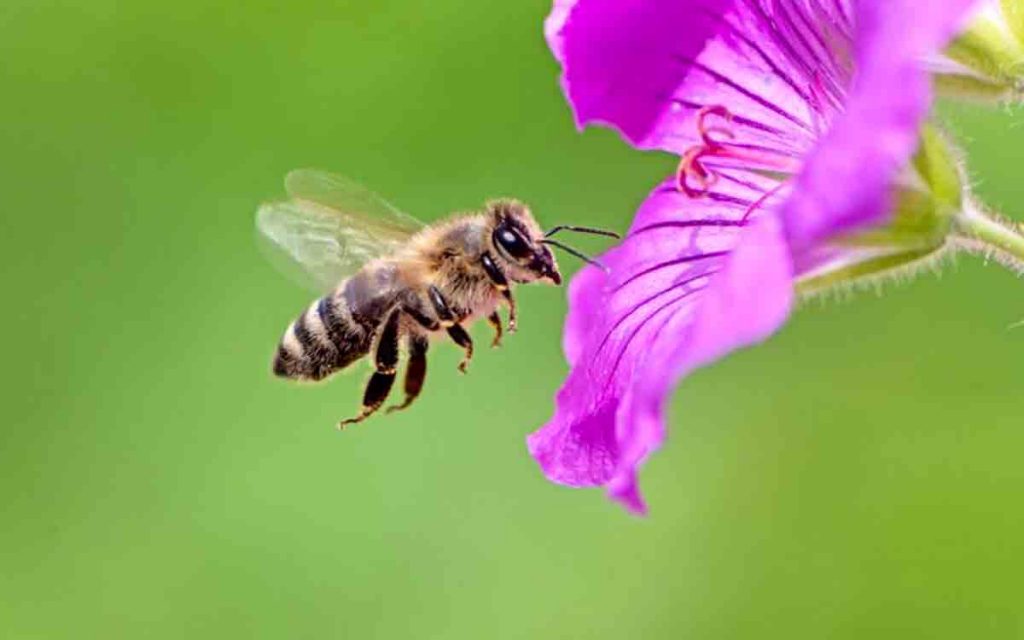Bees are part of life in the British Isles, and part of death. GAYLE FIDLER explains local bee superstition and how it has influenced the darker parts of our life.

It is a warm summers evening and I am sat in my garden surrounded by roses and honeysuckle. All around me I can hear the rhythmic buzz of the bees gathering nectar from the flowers.
The sound is hypnotic, a little song of summer. The bees have every right to sing as they work. For centuries, bees have been revered by humans. They have been worshipped as gods, provided us with food and drink, healed our wounds and helped shape the weapons that inflicted them.
Bee superstition and folklore
Bees have always played an important role alongside humans and as such the folklore surrounding these precious creatures is as rich as their honey.
In the United Kingdom, tales of the bees have been passed down through generations. Life and death, marriage and birth. There is a Bee superstition to surround most rites of passage.
Bees and Death
One of the most common superstitious practices for beekeepers throughout the British Isles, was that of “Telling the Bees”.
In the event of a death in the family, it was widely believed that the bees must be told of the news as soon as possible. If they were not told, the hive would either be deserted or another death within the family would soon occur. The practice of telling the bees involved tapping on the hive and politely announcing the death in a whisper. It was believed that if the bees were told of the news in a loud, abrupt manner, they would become offended and leave the hive.
Another superstition, which comes from Northumberland, involved the death of the beekeeper. It was said that the hive would never again flourish even if a new keeper was found. If the bees did not desert the hive at the death of their original owner, they would never be productive under a new one.
Some stories tell us that people believed the soul could leave the body whilst a person slept. The spirit would travel as a bee, flying from place to place. The Bee would return to the body through the ear before the person awoke. Other tales suggest Bees to be the souls of the dead, coming back to visit family members.
Bees and Witchtrials
Stories from Scottish and English Witch trials claim that Bees were used as demonic familiars. One account from North Yorkshire, tells of a witch who kept three bumble bees as his familiars. He fed them from the blood of his fingertips.
Fortunately for our little buzzing friends, it is not all doom and gloom that surrounds the superstitions of the past. Bees were often the first to be told of good news in a household, including a birth or marriage. Sometimes gifts would be placed within the hive to promote good fortune. These gifts would usually include a cake of some sort, often made from honey.
Bees and British folk medicine
Bees played an important part in British folk medicine. Honey has widely been used as a cure for many ailments including burns and sore throats. However, lesser known is some of the more macabre bee treatments.
A medieval cure for baldness consisted of honey and dead, powered bees rubbed thoroughly into the scalp before bedtime. Another cure for eye problems involved taking the heads of dead bees, mixing them with honey and rubbing them into the infected area. A useful tip if you ever find yourself at the mercy of a Wicker man.







